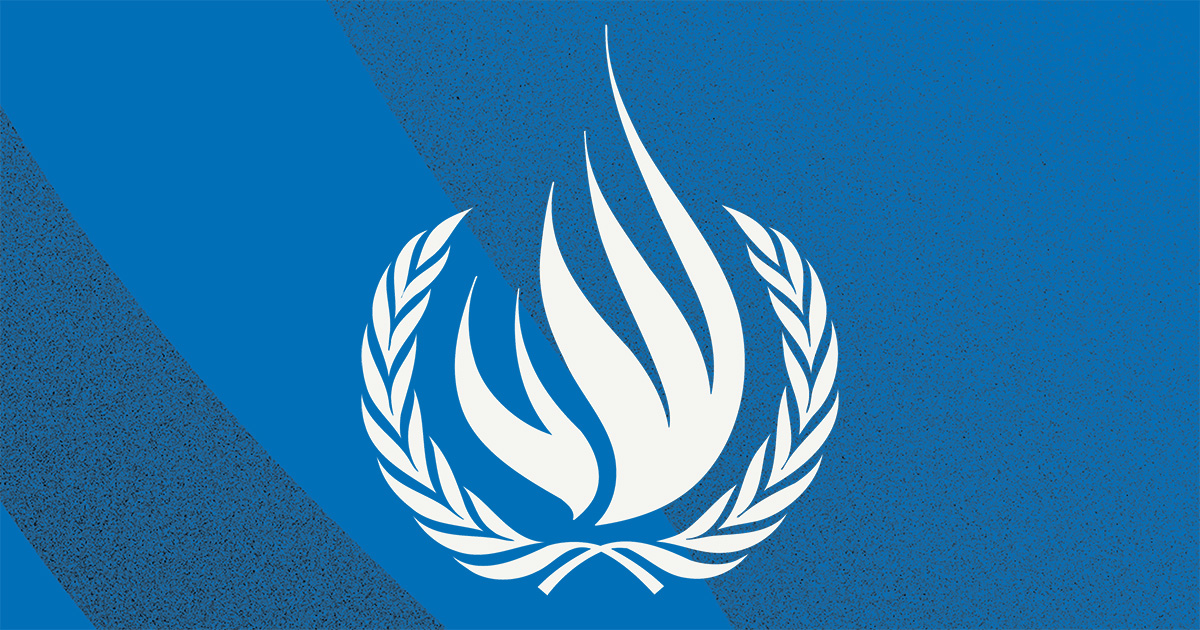
Video message from Volker Türk, UN High Commissioner for Human Rights
AT
Regional dialogue Americas: Indigenous Peoples and access to justice
RELATED
STATEMENTS AND SPEECHES
Decades prove that human rights deliver solutions, Türk says
UPDATES
Marking the 75th anniversary of the Universal Declaration of Human Rights
STATEMENTS
For solutions, look to the Universal Declaration of Human Rights
Colleagues,
This is a time to take stock.
Of how far we’ve come in terms of human rights. Of the steps we’ve taken, or not. But most importantly, to chart a constructive path forward – with dignity, equality and justice as our guiding principles.
The 75th anniversary of the Universal Declaration of Human Rights is not just a calendar event: it’s an opportunity for reflection.
For action to right past wrongs.
And for rekindling the spirit of the Declaration and its promise of human rights for everyone, everywhere.
These regional dialogues serve as building blocks for our forthcoming Vision Statement for Human Rights to be released at our High-Level Event in December to mark this anniversary year, and they will also inform the 2024 Summit of the Future.
Colleagues,
This dialogue addresses one of the most pressing human rights issues in the Americas: access to justice for Indigenous Peoples.
I have been privileged to meet with Indigenous Peoples representatives from this part of the world and to listen to their stories directly.
Across the whole region, my Office works closely with Indigenous Peoples.
Their vibrant cultures, histories and ancestral traditions enrich us all.
At the same time, what we hear of is a lifetime of structural discrimination. Of ancestral lands being ripped away, fuelled by the expansion of extractive industries, development projects, land grabbing, and large-scale agriculture.
Indigenous Peoples human rights defenders tell us about the various threats they face, including attempts on their life.
Simply because they are defending their rights and the traditional lands, resources and territories upon which their communities depend.
Yet in the face of these grave violations of their human rights, their access to justice remains elusive in many parts of the continent.
Despite access to justice being one of the principles of the rule of law.
Despite the clear provision of the United Nations Declaration on the Rights of Indigenous Peoples’ that Indigenous Peoples have the right to access remedy for all infringements of their individual and collective rights, in full respect for their customs, traditions and legal systems.
Colleagues,
Indigenous Peoples’ own legal and justice systems remain unrecognised by many local, national and regional authorities.
Discrimination against Indigenous Peoples in ordinary justice systems is rife, and the barriers to seeking justice are many.
Poor economic and social conditions. Language. Inadequate or complex legal procedures. Fear of reprisals and violence. Lack of funding necessary to seek justice, including legal aid. Or businesses that deny or ignore their responsibility to respect human rights, raising difficulties for Indigenous Peoples to seek redress.
I am heartened to see glimmers of progress.
Across the region, some countries have embraced a dual legal framework, where Indigenous legal systems and the authority of Indigenous leaders are officially recognised.
We need to see these laws put into practice. And we need to see these efforts multiplied.
We know that Indigenous justice systems which are aligned with international human rights law can play a crucial role in making access to justice for Indigenous Peoples a reality.
They are closer to the communities they serve.
They have stronger ties to culture and language.
Better coordination between Indigenous and ordinary justice systems can break down the barriers preventing Indigenous Peoples from accessing justice today.
I urge States to work in partnership with Indigenous Peoples to move towards more integrated justice systems, especially systems that respond to the specific needs of Indigenous women, children and young people, and people with disabilities. Indigenous activists and human rights defenders also require special protection.
Five years ago, the landmark Escazú Agreement laid out the path for States in Latin America and the Caribbean to act on climate change and to protect environmental human rights defenders. The Agreement guarantees access to environmental information as well as access to justice for Indigenous Peoples’ defenders of the environment. I call States to ratify this treaty.
Acting now for Indigenous Peoples’ full and unhindered access to justice – and the realisation of all of their rights and freedoms - is of the utmost urgency.
I look forward to hearing about the pledges made here today to make this happen.
And my Office looks forward to supporting you.
Thank you.
Tags











